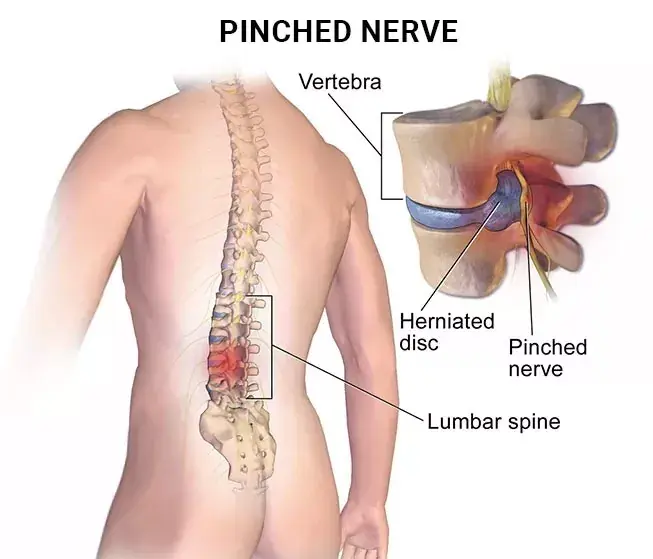The Stress-Pain Connection
- Dr. Jill Evans

- May 6, 2025
- 3 min read

Understanding Emotional Stress and Back Pain
Have you ever noticed your back or neck tightening during a stressful meeting? Or perhaps you've experienced a headache after an emotionally challenging day? These aren't coincidences. We recognize that your emotional well-being and physical health are deeply interconnected, particularly when it comes to spinal health.
The Science Behind Stress and Pain
When you experience stress, your body undergoes several immediate physical changes:
Muscle tension increases, particularly in the neck, shoulders, and lower back
Breathing patterns shift from deep, diaphragmatic breathing to shallow chest breathing
Blood flow redirects from digestive and healing functions to major muscle groups
Inflammation increases throughout the body's tissues
Posture often changes to a protective, hunched position
These physiological responses were designed to help our ancestors survive immediate physical threats. However, in today's world, where stressors are often persistent and psychological rather than immediate and physical, these same responses can create chronic problems.
Common Stress-Related Musculoskeletal Issues
At Southeast Integrative Health, we regularly see patients whose emotional stress manifests as:
1. Upper Back and Neck Tension
Prolonged stress causes the trapezius and cervical muscles to remain contracted, leading to stiffness, pain, and even headaches. Over time, this can alter the natural curve of your cervical spine.
2. Lower Back Pain
Anxiety and chronic stress often manifest as lower back pain due to prolonged contraction of the lumbar muscles. This tension can pull vertebrae out of alignment and restrict movement.
3. Jaw Pain and TMJ Dysfunction
Many people unconsciously clench their jaw during stressful periods. This can create a cascade of tension that travels down the neck and into the shoulders.
4. Reduced Recovery from Injuries
Chronic stress impairs your body's healing processes, making recovery from even minor injuries more difficult and prolonged.
How Chiropractic Care Addresses the Stress-Pain Connection
At Southeast Integrative Health, our approach recognizes both the physical and emotional components of pain. We take time to understand not just where you hurt, but what might be contributing to that pain, including emotional stressors. Chiropractic adjustments help release areas where stress-induced muscle tension has created misalignments, reducing nerve irritation and restoring proper movement. Proper spinal alignment supports optimal functioning of your nervous system, which can help your body better regulate its stress response. Dr. Jill provides guidance on recognizing the physical manifestations of stress and tools to address them before they create lasting problems.
Self-Care Approaches for Breaking the Stress-Pain Cycle
In addition to regular chiropractic care, these practices can help manage the physical impact of emotional stress:
1. Body Awareness Practice
Take brief moments throughout your day to scan your body for tension. Are your shoulders creeping toward your ears? Is your jaw clenched? Simple awareness is the first step toward release.
2. Stress-Reduction Techniques
Practices such as deep breathing, progressive muscle relaxation, and mindfulness meditation can help interrupt the stress response before it creates physical problems.
3. Movement Medicine
Regular physical activity, particularly gentle options like walking, swimming, or yoga, helps release stress-induced muscle tension and promotes emotional well-being.
4. Sleep Hygiene
Quality sleep is essential for both physical recovery and emotional resilience. Create a consistent sleep schedule and a restful environment.
5. Support Systems
Don't underestimate the power of social connection and professional support. Sometimes talking through stressors can prevent them from becoming physically manifested.
The Integrated Approach at Southeast Integrative Health
At our practice, we don't just treat your spine, we treat you as a whole person. We understand that lasting relief often requires addressing both physical misalignments and the stressors that may have contributed to them.
Our goal is to not only help relieve your current pain but to equip you with the knowledge and tools to better manage the inevitable stresses of life before they create new physical problems.
If you've been experiencing pain that seems connected to periods of stress, or if you've noticed that emotional challenges tend to manifest physically for you, we invite you to schedule a consultation. Together, we can develop a comprehensive approach to help you feel better in both body and mind.
This article is for informational purposes only and does not constitute medical advice. Always consult with qualified healthcare providers for your specific health concerns.






Comments